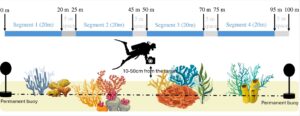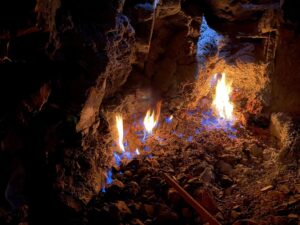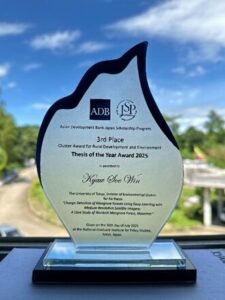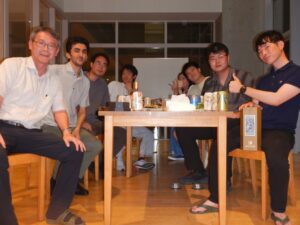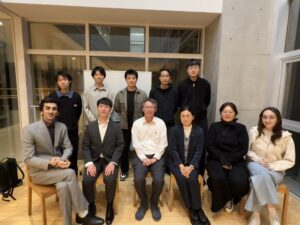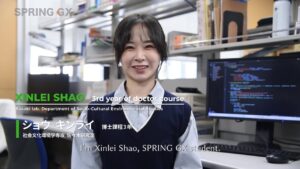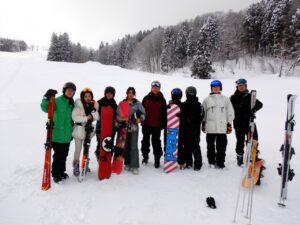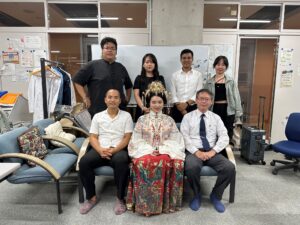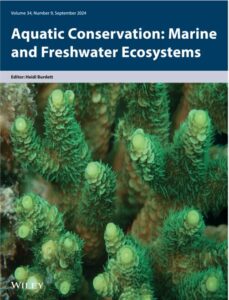Multi-label classification for multi-temporal, multi-spatial coral reef condition monitoring using vision foundation model with adapter learning
While coral reef ecosystems provide important ecological services, they are increasingly threatened by global warming, ocean acidification, and human disturbances. Around the world, citizen science-based coral reef conservation programs have been implemented to support local monitoring and management. These programs typically rely on volunteer divers to record text-based observations, a process that is labor-intensive and often inconsistent across observers. With the growing availability of underwater imagery, deep learning models offer a promising solution for automating coral condition assessment. However, conventional models still struggle to maintain high accuracy and generalizability when dealing with complex ecological monitoring tasks. Building on our previous work published in Aquatic Conservation: Marine and Freshwater Ecosystems, this […]
Prediction of gas hazard in coal stratum tunnels based on improved snake optimizer and support vector machine
Coal seam gas explosions are among the most destructive geological hazards in underground engineering. Owing to its toxicity and high flammability, gas accumulation in confined tunnel spaces can readily trigger combustion–explosion accidents, resulting in severe casualties and equipment damage. Existing safety measures, such as ventilation, drainage, and online monitoring, are typically activated only when danger is imminent or after a disaster has already occurred, leaving workers with minimal response time and little margin for error, thereby failing to ensure construction safety. This underscores the urgent need for risk assessment and proactive prediction during the investigation stage. Nevertheless, systematic and effective research in this area remains limited. To bridge this gap, […]
Diamond cursor in Windows
This is a memo of the geeky tasks to perform first after purchasing a Windows 11 PC. It covers swapping Ctrl and CapsLock and setting the diamond cursor. Swapping Ctrl and Caps Lock Open the Registry Editor with regedit, navigate to HKEY_LOCAL_MACHINE → SYSTEM → CurrentControlSet → Control → Keyboard Layout, and create a new entry named Scancode Map by selecting Edit → New → Binary Value. Enter the following data: 00 00 00 00 00 00 00 00 03 00 00 00 1d 00 3a 00 3a 00 1d 00 00 00 00 00 The initial zeros on the left can be ignored. When entered, spaces are automatically inserted […]
A graduate has won the Award in ADB-JSP Thesis of the Year 2025
Kyaw Soe Win, a master’s graduate from the Department of Socio-Cultural Environmental Studies, has been awarded 3rd Place in the Rural Development and Environment Cluster of the Asian Development Bank–Japan Scholarship Program (ADB-JSP) Thesis of the Year Award 2025. His thesis, titled “Change Detection of Mangrove Forests Using Deep Learning with Medium-Resolution Satellite Imagery: A Case Study of Wunbaik Mangrove Forest, Myanmar,” explored the application of deep learning models with the multi-temporal and multi-source imagery to monitor long-term changes in mangrove ecosystems, contributing to improved accuracy and valuable information for effective conservation strategies in Myanmar. Source: ADB Japan Funds Facebook Page
Laboratory farewell party and summer party
We held a farewell party and a summer party for special research student Nemati. Although he had to postpone his return home due to international conflicts, we wish him all the best in returning to his home country and successfully obtaining his doctorate.
April 2025 Lab's welcome party
In April 2025, two doctoral students and two research students joined our laboratory. In addition, one special research student has joined us as a visiting student for six months since January 2025. The welcome party for new students were held in the 6th floor lounge of the Environmental Studies Building on April 14th, 2025.
Research Introduction Video by SPRING GX Student Xinlei Shao
The "Fostering Advanced Human Resources to Lead Green Transformation (GX)" project proposed by Professor Shin-ichi Ohkoshi (Project officer) has been accepted as a program for Support for Pioneering Research Initiated by Next Generation (SPRING) of Japan Science and Technology Agency (JST) since Autumn 2021. Hereinafter this project is referred to as "SPRING GX". Currently, 1154 doctoral students from across all schools of the University of Tokyo participate in this project. Xinlei Shao, a third-year doctoral student from our laboratory, is a current participant in this program. Her research focuses on developing a novel method for monitoring coral reef conditions by integrating underwater imaging hardware with computer vision models. Videos introducing […]
Lab snowboard/ski trip in January 2025
The lab ski/snowboard trip came to Kagura for the first time in two years. It's convenient, being about 20 minutes by bus from Echigo-Yuzawa Station. We enjoyed an early dinner and hot spring at Michi-no-Eki Mitsumata.
Lab's farewell in September 2024
On September 20th, 2024, the commencement for September graduates was held, and four students in the laboratory were awarded a Master's degree in Environmental Studies. Congratulations! We wish you all the best as you enter the world of work. We were photographed by the Public Relations Office at GSFS, which was posted on X. Group photo in the student room
Deep learning for multilabel classification of coral reef conditions in the Indo-Pacific using underwater photo transect method
Research Overview Because coral reef ecosystems face human activities and climate change threats, coral reef conservation programs are implemented worldwide. Monitoring coral health provides references for guiding conservation activities. However, current labor-intensive methods result in a backlog of unsorted images, highlighting the need for automated classification. Few studies have simultaneously utilized accurate labels along with updated algorithms and datasets. This study aimed to create a dataset representing common coral reef conditions and associated stressors in the Indo-Pacific. Concurrently, it assessed existing classification algorithms and proposed a new multilabel method for automatically detecting coral reef conditions and extracting ecological information. A dataset containing over 20,000 high-resolution coral images of different health […]

